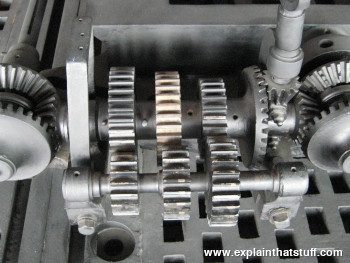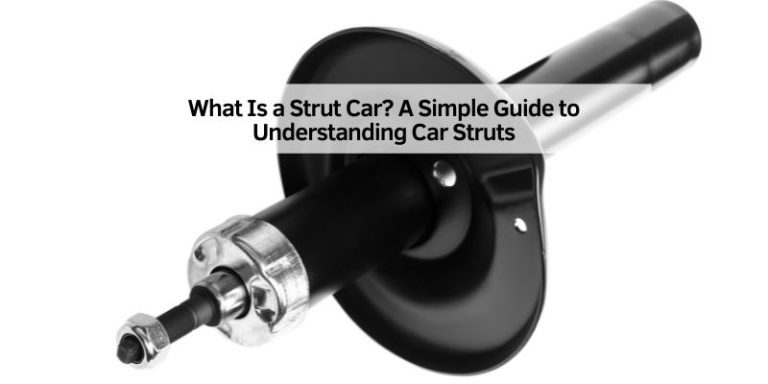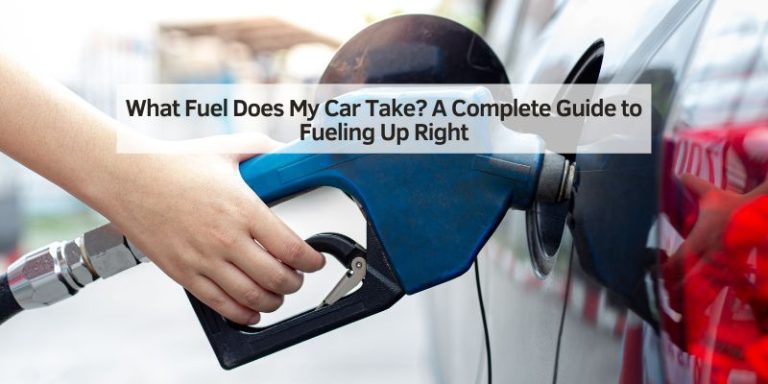Why Does My Car Stutter When I Start It?: Quick Fixes!
Your car may stutter at startup due to a weak battery, faulty spark plugs, or fuel delivery issues. Identifying the exact cause is essential for effective troubleshooting.
Experiencing stuttering when starting your car can be frustrating and concerning. This issue often signals underlying problems that require immediate attention. Common culprits include a weak battery, worn-out spark plugs, or issues with the fuel system. Ignoring these symptoms may lead to more severe mechanical failures and costly repairs.
Timely diagnosis can save you from further complications. Regular maintenance checks can help you catch issues early. Understanding the reasons behind your car’s stuttering can empower you to take the right steps toward a solution. Keep your vehicle running smoothly by addressing these concerns promptly.
Introduction To Car Stuttering
Car stuttering can be frustrating. It often means something is wrong. Symptoms include rough idling, engine misfires, and hesitation when accelerating.
Many drivers notice stuttering during cold starts. This occurs especially in cold weather. Stuttering can also happen when the engine is hot. Fuel system issues may cause problems at any time.
| Common Symptoms | Possible Causes |
|---|---|
| Rough Idling | Worn spark plugs |
| Engine Misfires | Fuel injector issues |
| Hesitation | Air filter blockage |
Fuel System Issues
Dirty fuel injectors can cause your car to stutter at start-up. These parts spray fuel into the engine. If they are dirty, they cannot deliver fuel properly. This leads to uneven engine performance.
A clogged fuel filter can also create problems. It blocks fuel flow from the tank to the engine. This means not enough fuel reaches the engine. A lack of fuel can cause rough starts and stuttering.
| Issue | Effect |
|---|---|
| Dirty Fuel Injectors | Uneven engine performance |
| Clogged Fuel Filter | Insufficient fuel flow |
Ignition System Malfunctions
Faulty spark plugs can cause a car to stutter at startup. These components ignite the fuel in the engine. Worn or damaged spark plugs may fail to create a strong spark. This results in poor engine performance and rough starts.
Worn ignition coils are another common issue. They transfer electrical energy to the spark plugs. If the coils are weak or damaged, the spark plugs won’t work properly. This can lead to misfires and stuttering during ignition.
Battery And Charging System
A weak battery can cause your car to stutter on startup. If the battery does not hold a charge, it struggles to provide enough power. This results in slow engine cranking and can lead to stuttering.
Check for corroded connections or damaged cables. These issues can block the power flow. Replacing the battery may be necessary if it fails to perform.
Alternator problems can also create starting issues. The alternator keeps the battery charged while driving. If it malfunctions, the battery may not get enough power.
Signs of a faulty alternator include dim lights and strange noises. Testing the alternator’s output can help identify the problem.
Air Intake And Filter Concerns
Blocked air filters can cause your car to stutter. They restrict airflow to the engine. This makes the engine work harder to get air. Reduced airflow can lead to poor performance. Cleaning or replacing the air filter may help.
The mass air flow sensor measures the amount of air entering the engine. A faulty sensor can send incorrect data. This leads to fuel mixture problems. The engine may misfire or stall when starting. Regular checks can prevent these issues.
Sensor And Electronic Failures
Oxygen sensors play a crucial role in your car’s performance. A defective oxygen sensor can cause the engine to stutter. It affects how the engine mixes fuel and air. This leads to poor combustion and stalling.
Throttle position sensors also affect engine performance. Issues with the throttle position sensor can cause erratic idling. This might make your car hesitate during starts. A faulty sensor sends incorrect signals to the engine control unit.
| Sensor Type | Common Issues | Symptoms |
|---|---|---|
| Oxygen Sensor | Defects | Engine stutter, poor fuel efficiency |
| Throttle Position Sensor | Issues | Erratic idling, hesitation during start |
Quick Fixes For Stuttering Cars
Stuttering cars can be frustrating. Here are some DIY tips to help you. Check the battery first. A weak battery can cause stuttering. Clean any corrosion on battery terminals. Make sure all connections are tight.
Look at the fuel system next. A clogged filter can affect performance. Replace the fuel filter if needed. Also, check the spark plugs. Worn spark plugs can cause starting issues. Replacing them can improve engine performance.
Sometimes, professional help is necessary. If your car continues to stutter, visit a mechanic. Ignoring the issue can lead to serious problems. A professional can diagnose issues accurately. This can save you time and money in the long run.
Preventive Measures
Having a regular maintenance schedule is key for your car’s health. Check the battery, spark plugs, and fuel system often. These parts can cause stuttering if they are worn out. Replace parts as needed to keep your car running smoothly.
Early detection of issues can save you money and stress. Listen for strange noises or feel odd vibrations. Regularly inspect your car for warning lights. A simple check can prevent bigger problems later.
Make sure to keep an eye on fluid levels. Low oil or coolant can cause stuttering. Check tires for proper inflation. Under-inflated tires can affect performance.
Frequently Asked Questions
Why Does My Car Stutter On Startup?
Your car may stutter on startup due to a weak battery, faulty spark plugs, or fuel delivery issues. Check for loose connections or low fuel levels. Regular maintenance can prevent these problems and ensure a smoother start. Addressing these issues promptly can enhance your vehicle’s performance.
Why Does My Car Stutter When I Start But Run Fine?
A car may stutter on startup due to a weak battery, fuel delivery issues, or spark plug problems. These factors can affect engine performance initially but may not impact regular driving. Regular maintenance helps prevent these issues and ensures smooth operation.
Why Does My Car Jitter When I Start It?
A car may jitter at startup due to low battery voltage, fuel delivery issues, or engine misfires. Faulty spark plugs or ignition coils can also cause this problem. Regular maintenance helps prevent these issues, ensuring a smoother start and better performance.
Why Does My Car Make A Chugging Sound When I Start It?
A chugging sound when starting your car may indicate a weak battery, faulty spark plugs, or fuel delivery issues. Check these components to diagnose the problem. Ignoring it can lead to more significant engine issues over time, so address it promptly for optimal performance.
Conclusion
Experiencing stuttering when starting your car can be frustrating. Understanding the potential causes is crucial for effective troubleshooting. Regular maintenance and timely repairs can prevent such issues. If problems persist, consult a mechanic for a thorough diagnosis. Keeping your vehicle in top shape ensures a smoother, more reliable driving experience.







